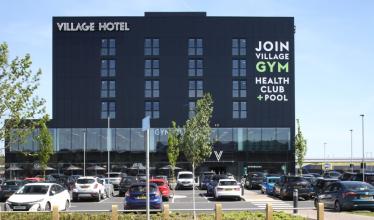Renault has created an open-source automotive platform based on its Twizy, which will allow start-ups, private customers, and independent laboratories to copy and modify existing software to create a customisable electric vehicle.
Called POM, the new platform was launched alongside other developments that included a collaboration between Renault and Pilot, showing an electro-luminescent EV charging cable. The Light Pulse Cable can show the existing charge level be flashing on and off proportionate to electricity flow.
A low level of charge will see a higher current flow, and a faster flash rate, which will slow as the battery charges before switching off when the battery is fully charged. This will not only be of benefit for those who want to keep an eye on charge status quickly, but will also offer an added safety benefit for charging in the dark.
The new POM platform is the world’s first open-source mass market vehicle according to Renault, and uses a Twizy platform with the bodywork parts removed as its base.
The new model was launched at the CES 2017 show in Las Vegas, and is part of Renault’s plans to develop electric, connected, and autonomous cars with its technology partners.
Solutions to those three challenges can be found either by Renault Nissan Alliance companies, by technology partners such as ARM, OSVehicle, Sensoria, and Pilot Electronics, and by the Renault Creative People Lab. Having an open source platform will accelerate developments in the three mobility areas, with anyone able to work on either hardware – the vehicle and bodywork – and software – operating systems and supportive apps.
Pierrick Cornet, VP Engineering, Groupe Renault, said: “Renault has been making cars for more than 100 years and our industry is changing rapidly. Being able to work in all new ways, incorporating new technology with new scenarios in mind, ensures we’re constantly exploring new areas of transportation, connected cars, zero emissions and an easier life for our customers.
“CES is one of the world’s great stages for what’s next in consumer technology and we’re excited to be here with our partners and through the Renault-Nissan Alliance.”
Richard York, vice president of embedded marketing, ARM, said: “Connected vehicles will enable new business models that deliver a broad range of choices and experiences for end users. “The automotive industry will increasingly focus on the specific functionality that owners want, such as comfort level and entertainment. By providing this platform, Renault is paving the way for innovation in these areas.”



